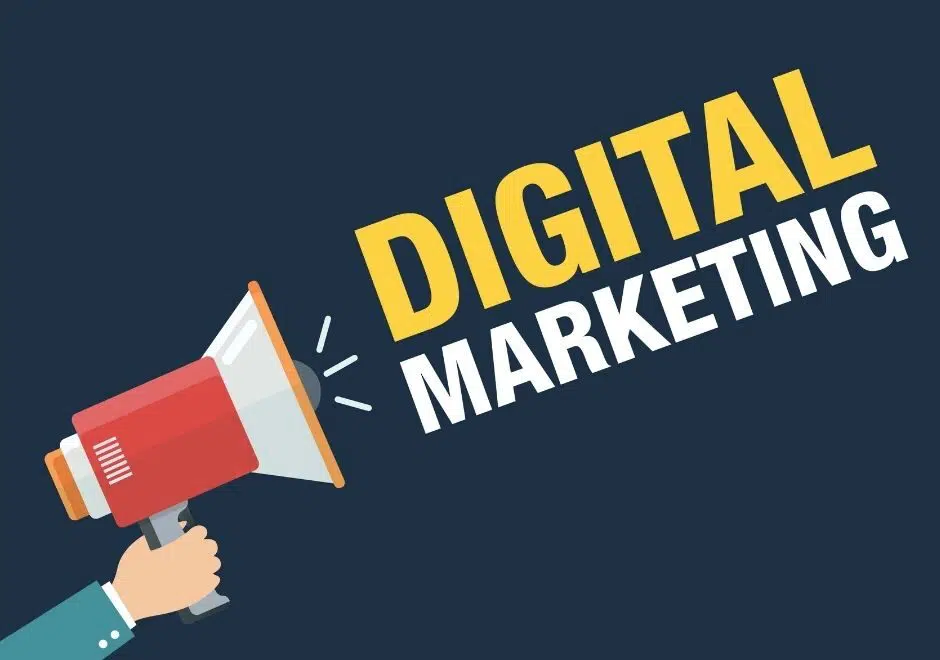If you’re considering starting your own business, you’ll undoubtedly want to fast-track your way through your chosen market to be able to stand out from the crowd. While that’s easier said than done, that’s where digital marketing skills step in to help you keep your business on top of its game.
In today’s digital world, digital marketing skills are no longer an option – they’re crucial for any modern-day business and across all industries. If you’re at a point where you don’t yet have a solid grasp of the fundamentals of digital marketing, we’ve got you covered.
This guide will acquaint you with the 5 digital marketing skills you need to be competent in to remain competitive when you start your business. These skills will be your number one asset, especially if you’re going to be the jack of all trades for a while before you start outsourcing a marketing team, so keep reading!
1. The Basics of Search Engine Optimisation
If you’re going to have a website for your business (which you probably will), the whole point of it will be to get your target audience to visit it, right? That’s what search engine optimization (SEO) is all about.
Simply, SEO involves the activities you take to improve both the quantity and quality of your website’s traffic. In essence, when you focus on SEO, you work to improve your website to boost its visibility on search engines so that when people search for products or services related to your business, they find your website.
Naturally, the higher your website’s visibility, the more you’ll attract traffic, gain leads, and possibly convert those leads into conversions and long-term customers. When you start gaining more visitors through search engines like Google, that’s called organic traffic
While there are many aspects to SEO, and it can get overwhelming to try to acquaint yourself with all things SEO-related, take it step by step and just learn about best practices and basics. For instance, you could start by researching what methods can help businesses in your particular industry rank higher on search engines.
Similarly, an excellent start would also be learning about on-page and off-page SEO, local listings, and keyword research. Once you begin implementing basic SEO measures like these to your website, you’ll start reaping its benefits in the long run, and it’ll require minimal maintenance from your side.
2. Principles of Coding and Tech
Speaking of business websites, to have one, you’ll need to learn some light coding and familiarise yourself with technology systems to bring your website to life and manage it afterward. While there are many systems to choose from like WordPress and Wix, you’ll need to factor in your specific business needs relating to the website and then choose accordingly.
Once you’ve narrowed down your options, you’ll start researching how to use it to build a website. For example, you’ll have to start learning about hosting and plug-ins, how to leverage them to customise your website to your needs, setting up contact forms, choosing between themes and color schemes, and other essential factors.
It’s worth mentioning that most of these are straightforward and user-friendly, so you won’t have to delve too much into the backend of technology. Everything will be doable with a simple Google search accompanied by guiding YouTube videos and tutorials. The idea is just to make sure you end up with a functional, easy-to-navigate website that’s also mobile-responsive.
Of course, if you want to focus your time and energy on other aspects of your business, we have cost effective website packages to make your life easier.
3. Writing Persuasive Content
If you don’t have the necessary resources to hire a copywriter for your business in its early stages, then you’ll need to familiarize yourself with persuasive writing techniques to be able to market your business and its offerings. After all, having a list of product specifications won’t be sufficient to entice your target audience to make the purchase – they need a motive.
That motive is mostly always related to how you’re marketing (and selling) your products or services – whether in an ad, tweet, sales email, newsletter, blog post, or even your website’s home page.
Yet, it’s crucial to draw the line between authentically portraying your offerings in the right light to encourage your potential customers to make a purchase and between being too pushy. You want to present your business in a manner that reflects that you’re an honest brand that places its customers first, not sales.
Additionally, while it’s true that writing is vital for every business, what’s even more important is finding a tone of voice for your business brand. To put things into perspective, you can’t be extremely formal in one message and extremely informal in the next.
You need to stay consistent with your writing style to build a meaningful connection and relationship with your target audience – otherwise, your brand image will get distorted in the process. Once you know how to subtly persuade your audience to become your customers and develop a consistent brand voice, you’ll be well on your way to conversions and success!
Remember, the point of any content piece you write is to engage your audience, so there’s no point in it if it doesn’t fulfill that purpose! Also, it’s worth noting that search engines favor high-quality content over poor-quality content, so this point is closely related to SEO.
4. Fundamentals of Graphic Design
In today’s day and age, words aren’t enough – that’s a fact. Visuals are what draw customers in, so you must know how to create eye-catching visuals, images, or graphics to attract your target audience’s attention. That’s why we never see marketing campaigns or ads without visuals.
Of course, you don’t have to be an expert in graphic design or be a pro in Photoshop and Illustrator when you’re starting your own business, but it’s all-important to at least have basic knowledge of graphic design.
To avoid investing your time and effort in unneeded areas, it’s best to research the type of visuals your target audience is most attracted to (infographics, GIFs, animations, plain photos, or others). Then, find a platform to enable you to create these visuals seamlessly. Luckily, there are plenty of them today, like Canva, Adobe Spark, Easel.ly, and more.
Once you familiarize yourself with how to use these free programs, you’ll be able to create engaging content you could share across different customer touchpoints, including your website, email marketing campaigns, social media platforms, and anywhere else.
5. Social Media Management
Last but not least, as someone starting their own business, you need to be able to leverage the power of social media for the benefit of your business. Having a social media presence for your business is a must because it’s one of the easiest ways to reach thousands of potential customers in a split second.
However, for social media to be effective, you need to consider your target audience every step of the way. For instance, what’s the point of being active on Twitter if all of your customers are only on Facebook or Instagram? Therefore, you need to rely on data analytics and your vision of your buyer persona to choose the suitable platform to invest in.
By the same token, you’ll also be able to determine which content types your potential customers are interested in and engage with, what times they’re active on social media so that you can publish your posts at the same time, and more.
It’s also worth a shot to look at what your competitors are doing – what platforms they’re using, what seems to be working and what isn’t, how engaged their audience is, and any general patterns.
All in all, the very first step to take is to understand the different social media platforms and how communication differs between them. To portray, LinkedIn, for example, is a more professional platform you could use to hire calibers of different backgrounds, while Instagram is all about visuals. Accordingly, spend some time understanding the different channels.
If done right, social media will have a tremendous impact on how your business interacts with the audience! And when your budget allows it, you can then start outsourcing social media management and relying on software to do all the hard work.
So Are Your Digital Marketing Skills In Order?
When you’re starting your own business, there’s probably going to be a time where you’ll manage everything yourself. Yet, it’s vital not to neglect the importance of digital marketing skills. The digital marketing industry is a fast-paced one that’s ever-changing, and to stay ahead of the crowd, you need to nurture your skills.
But on the bright side, while it may seem like a lot of work, digital marketing genuinely reaps countless benefits. Hopefully, the building blocks we’ve discussed in this guide will get you started on the right foot – and if you want to engage an affordable, professional digital marketing agency to help you, we are only a click away!
Keeping our prices low and content free with affiliate links.








